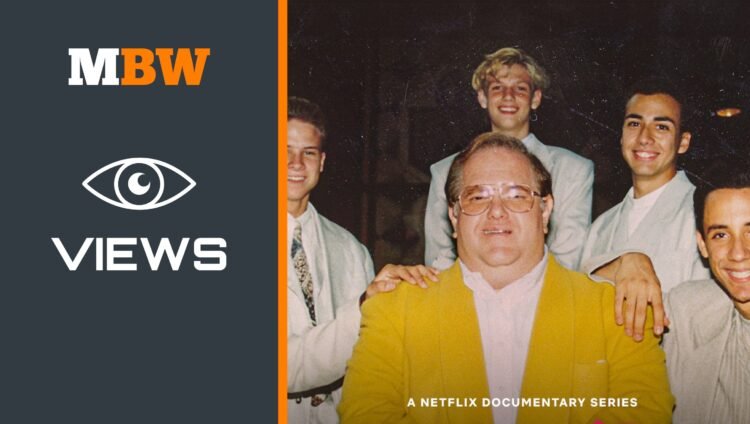The following MBW Views op/ed comes from Matt Thomas (pictured inset below), a 30-year music industry veteran.
Thomas is also co-founder of the industry charity Music Support and a Director of Attune, just two of the organisations which help and support artists, individuals and companies in the music and associated entertainment industries.
Attune has recently released ‘The Urgent Response Guide’, a free, interactive resource for artist-facing professionals experiencing anything from a concern to a crisis. Thomas also co-presents ‘Empathy for the Devil’, a podcast that investigates historical case studies of troubled artists and explores their lives through a bio-psycho-social lens within their cultural contexts.
The opinions stated in this piece are those of the writer and do not necessarily represent the positions of MBW or Music Support.

Today, somewhere in the world, an artist is quietly, or loudly, falling apart in front of other people. And whilst we as an industry have the tools and services to prevent the crisis that will inevitably follow, these often remain unknown or underused.
Surely, therefore, in an industry where the concept of ‘duty of care’ is murky at best, we all have a collective responsibility to create awareness of the very real solutions that already exist.
With that in mind, the increasingly common pieces in the media that highlight the problem but ignore the solutions are becoming a real concern.
We have seen a recent uptick of shocking documentaries and movies about the dark side of fame and its associated pressures, such as Boybands Forever, I’m Tim, No Matter What, and Dirty Pop, featuring heartbreaking first-hand testimonies from people who were children when they were ‘discovered’, as well as the retrospective reportage documentaries about Liam Payne, Lil Peep and Amy Winehouse.
Yet while we grab the popcorn and watch these sensationalist stories, young people are still dying, despite us having more resources and understanding than ever before.
People’s personal pain shouldn’t simply become watercooler moments to be dissected on social media; we shouldn’t be treating them as a Netflix and chill accompaniment to real-life tragedies.
And they aren’t just isolated incidents – they are evidence of an increasingly pressing need for systematic support and preventative action across our industry.
The evidence is right there on our screens, raw and undeniable – Robbie Williams laying bare the psychological devastation of high-profile celebrity, young men in boy bands struggling to cope in the global spotlight without adequate support systems, Avicii desperately seeking rest and recalibration while trying to balance the demands of his career with tragic consequences, Lil Peep’s struggles with addiction.
We watch these documentaries, share our thoughts and prayers, and then – nothing changes. The cycle continues.
Decade after decade, we have watched young performers face overwhelming pressure without adequate protection. Yet these tales aren’t just an archive; they are a reflection of what’s still happening right now; in recording studios, tour buses, hotel rooms and backstage areas around the world.
It’s this ongoing pattern that led us to create the “Empathy For The Devil” podcast, where we retell the stories behind some of these preventable tragedies from a modern mental health perspective – not to sensationalise, but to identify intervention points that could save lives today.
And here’s what’s important: We do have solutions. We have charities such as Music Support, MusiCares and Help Musicians UK providing vital services, record labels with in-house provision for artists and employees, and companies like Attune helping music companies fulfil their duty of care responsibilities.
We have the knowledge, the resources, and the capability to prevent these tragedies. Yet somehow, we’re still reading the same headlines, still watching the same stories unfold, and still pretending to be shocked when another young star reaches their breaking point.
Let’s be honest about this: for many, fame comes with profound psychological challenges that need to be acknowledged and addressed. We now have more than enough evidence of the struggles that occur under the harsh spotlight, and the immense pressure placed on young performers without adequate protection – too often with no recognition or response to clear signs of distress.
I write this piece from both personal and professional experience. As a major record label executive suffering from a combination of mental health issues and addiction, I was spiralling toward a point of no return – until an artist manager took some compassionate action that really spoke to me.
The irony isn’t lost on me. In an industry where we so often talk about protecting artists, it was an artist’s representative whose kind words in my storm of unacceptable behaviour led me to seek help. We need more of this kind of human intervention, more people willing to reach out when they see someone struggling.
We don’t need another round of “thoughts and prayers” or carefully worded statements. We need to put the existing set of tools into the hands of those who can make a difference.
The solutions exist – now we need action from everyone in our industry.
To our leaders: please embrace and implement the resources already available. Make first class mental health support as standard as a recording contract.
To the media who cover our industry: please shift your focus from endless tragedy coverage to highlighting successful interventions and supporting existing solutions. Your platforms could prevent deaths by guiding people to help, rather than just documenting when that help arrived too late.
And to the fans who sustain our industry: your understanding of the human cost behind constant content demands creates a more sustainable environment for the artists you admire.
Now that these powerful documentaries offer us further intimate glimpses into these artists’ emotional journeys, sharing their painful experiences first-hand or looking at the stories of those who didn’t make it, we should pay attention. Though we may not be able to help those who’ve already suffered, we can use these insights to protect those who need it now, and those to come.
Because right now, we’re all just waiting for the next headline, the next “gone too soon”, the next round of soul-searching that will last exactly as long as we finish our morning coffee – the next very well-intentioned promise to “do better” that rapidly fades as the realities of breaking artists create a significant cognitive dissonance.
Meanwhile, somewhere in a dressing room, a studio, or a tour bus, another artist is falling to pieces in plain sight.
This isn’t just an opinion piece. It’s a plea to use the resources we already have, to implement the solutions we’ve already developed, to make real change.
The tools are there. The support systems exist. Now it’s time to ensure everyone knows how to access them, how to use them, and how to save lives.
Every life lost from this point forward isn’t just a tragedy; it’s an indictment of the fact that we had the solutions but failed to implement them effectively.
It’s time to change that narrative.Music Business Worldwide






